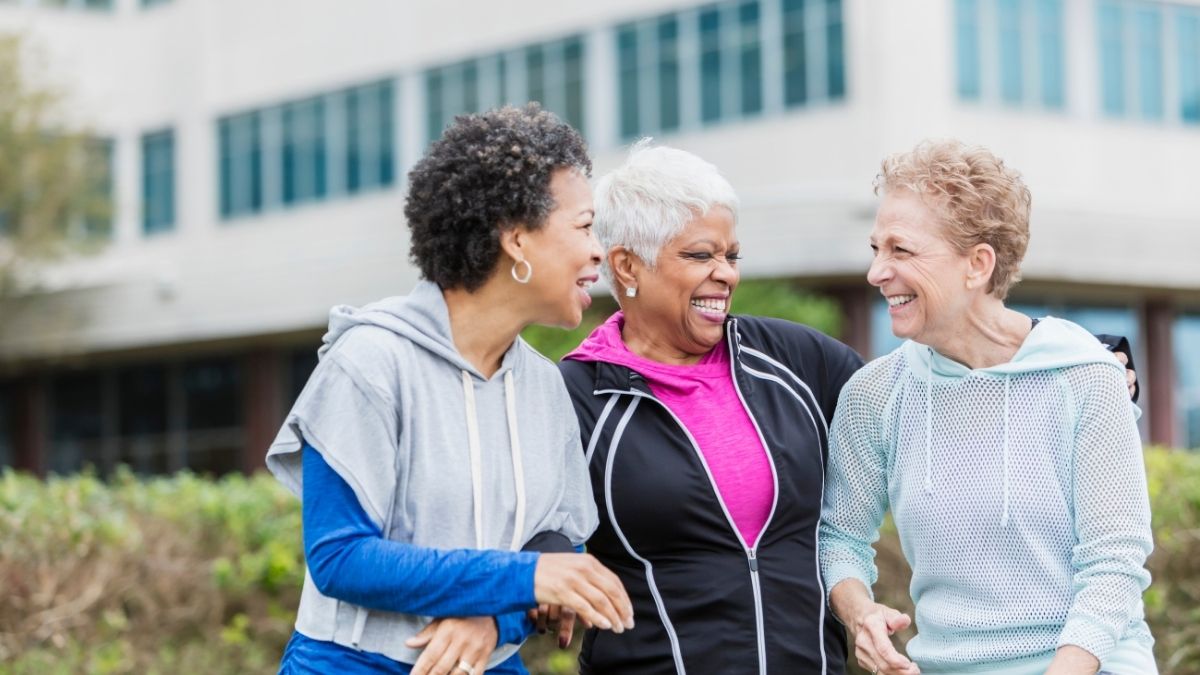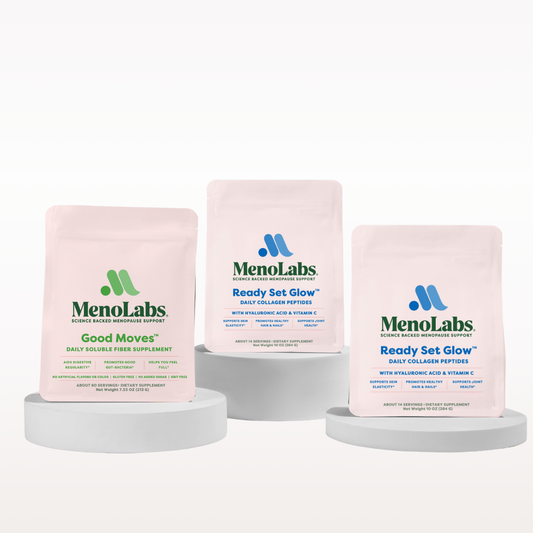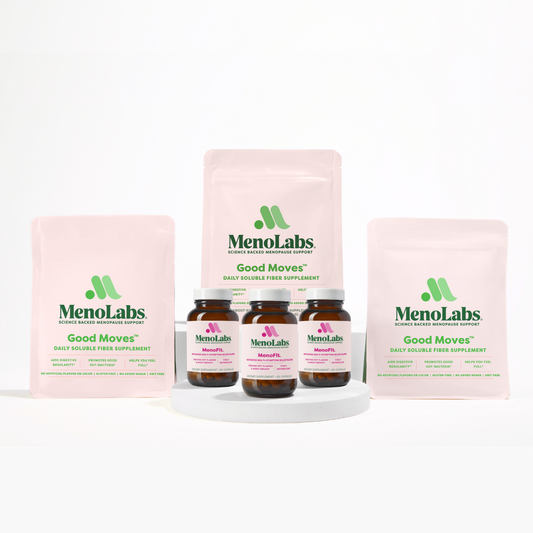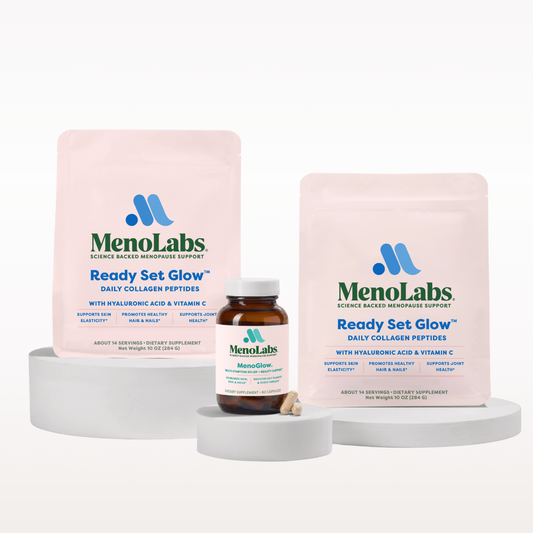
- Beauty
- Sleep
How Race Affects Menopause
Everyone is talking about perimenopause/menopause, now more than ever. We're so excited the conversation is rolling, but we want to be sure that everyone is at the table. With this...
1 min read
Everyone is talking about perimenopause/menopause, now more than ever. We're so excited the conversation is rolling, but we want to be sure that everyone is at the table. With this said, have you ever considered how peri/menopause might affect women from various backgrounds differently?
The Numbers Can Tell Us Everything
In 1994, the Study of Women’s Health Across the Nation (SWAN) took place to find out how peri/menopause was affecting women’s health outcomes. The study found many interesting facts relating to race and peri/menopause:
- Black women are more likely to report heavy menstrual bleeding, which may lead to the need to have a hysterectomy.
- Hispanic women are more likely to develop Type 2 Diabetes.
- Black and Hispanic women have the highest BMI and experience more frequent and severe hot flashes than any other group.
- Black, Asian, and Hispanic women start menopause before White women.
- A member of the SWAN team, Dr. Arun Karlamangla shares: “we find on average that people from disadvantaged communities have greater allostatic load than people from more advantaged communities.” Allostatic load is "the wear and tear on the body" accumulated by an individual exposed to chronic or repeated stress.
- An interesting study conducted online in 2010 found that Hispanic women tried not to share their menopause experience with anyone, and put others before themselves when it came to taking care of their peri/menopause symptoms.
- The average length of menopause related hot flashes and night sweats is as follows:
8.9 years in Hispanic women
10.1 years in Black women
Location Matters
Unfortunately, there have not been a lot of studies dedicated to peri/menopause. But the studies that have been done are usually in nice neighborhoods where the lab is located, so we need to consider who is involved in the studies. If mainly white women live in this area and BIPOC women are a small minority in the makeup of the neighborhood, who will the test results be reflecting? It is things like this we have to keep in mind when it comes to making sure we have inclusivity for all women experiencing peri/menopause.
We also have to consider when women are available to participate in these studies. BIPOC women who have a lower income range usually cannot take off from work to participate in a health study, let alone go to the doctor.
When we suggest that women reach out to various doctors, or find a doctor specializing in peri/menopause, we need to consider women who don’t have health insurance, but who need help with their symptoms. Or, women who have health insurance, but can’t go to a variety of doctors. How do we help them? The peri/menopause transition can be a lengthy, years-long experience. These women should have options!
Doctor Experiences
We keep sharing that women need to track their triggers and symptoms to share with their doctors. But, have you ever considered how older Black women might not be comfortable with visiting the doctor? Historically speaking, Blacks have been used for studies without their knowledge for many years after the end of slavery, making them wary of even visiting the doctor for a cold. Luckily, the Black community has started to trust and visit doctors more. Unfortunately, doctors do not always listen to these patients, often dismissing symptoms and complaints that are shared with them by Black women. Serena Williams is a perfect example of this. She has shared the racism she experienced during her birthing experience, and if you haven’t read that piece, we highly recommend it.
Communities to Share
That is why places like our app, MenoLife, help women of various backgrounds come together to share their stories and experiences. We want everyone to know that they are not alone! We also want to make sure that the barrier to engage in conversations, get answers and support is as low as possible. That’s why we’ve made our app available across as many devices as possible, and we don’t charge for access to it.
There are also support communities specifically for BIPOC women. We’re fond of these communities:
- Black Girl’s Guide to Surviving Menopause
- Directory of Black Women Physicians
- Menopause Whilst Black
- Black Women in Menopause Facebook Group
- Latina Women’s Support Group on Facebook
- Black Woman Going Through Menopause Support Group on Facebook
- Indian Menopause Society
Please let us know in the comments if you know of others!
What we can do
Keep sharing, reading, and going to the doctor. The only way we can make sure we are helping everyone is if we share our story/experiences. If you are reading this article, take the time to search for studies to participate in and give a diverse perspective.
Related Products
Blend Besties Bundle
Fresh Start Bundle
4.7 / 5.0
(554) 554 total reviews











